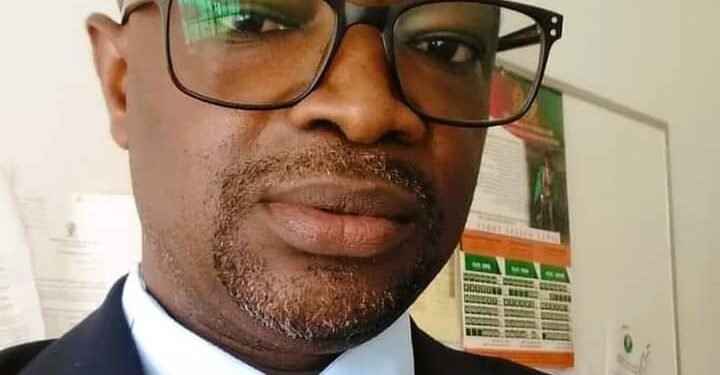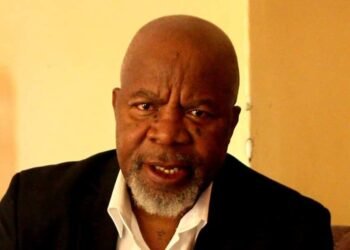The Constitutionality of the Technical Committee: A reply to Prof Cephas Lumina
By O’Brien Kaaba, University of Zambia
PROFESSOR Cephas Lumina has published two opinion articles in The Mast newspaper challenging the legality of the Technical Committee appointed to gather public views and propose amendments to the Zambian Constitution. The first article is entitled “The unconstitutional Technical Committee: How the Executive is repackaging Bill 7 through illegality” and was published on 23 October 2025. The second article is entitled “Reaffirming the case against the Technical Committee: Article 92 was never a blank cheque” and was published 30 October 2025. In them he cumulatively argues that the TC is unconstitutional for various reasons, including the legally puzzling and self-negating argument that the terms of reference came after the TC was appointed.
I argue in this article that the view taken by Prof Lumina is grossly mistaken and a display of failure to appreciate the difference between the existence of a law and its merits or demerits. In classic Austinian sense, one may not like the law and find no merit in it, but that does not turn the law into an illegality. To argue, as did Prof Lumina, that the TC is incapable of delivering a legitimate constitutional change is to fall in the trap of determining legality on the basis of the supposed demerit of a law and not its existence as a law.
(1)Failure to understand the hierarchy of norms
Let us start from an area Prof Lumina is comfortable with. He sees everything wrong with the TC appointed under article 92 of the Constitution, which vests in the President with executive power. He, with hindsight, also says the Silungwe TC should be condemned for the same reason that it was appointed under the exercise of executive power. However, he does not see anything wrong with various constitutional commissions appointed by the various presidents under the Inquiries Act. This approach does not hold. It is elementary that subordinate laws draw their life directly or indirectly from the constitution. In a constitutional democracy, to borrow from Dworkin: “A rule can never be binding just because some person with physical power wants it to be so. He must have authority to issue the rule or it is no rule , and such authority can only come from another rule which is already binding on those to whom he speaks. That is the difference between a valid law and the orders of a gunman.” To be valid, power exercised under the Inquiries Act must, therefore, be traced to the Constitution. If the President does not have the power under the Constitution, he cannot have it under the Inquiries Act. Under the Inquiries Act, the president appoints commissioners, determines their terms of reference, the commission reports to the president and in the end the president determines what to do with recommendations from the commission. Qualitatively, this is not in any way different from the TC appointed under article 92. The President appointed the TC, set the TC terms of reference and will determine what to do with recommendations to be made. Since the Inquiries Act revolves around the president being given power to appoint a commission to advise him on a matter of public interest, it is a clear case of deployment of executive power. That executive power under the Inquiries Act is not free flowing or isolated but must issue from the Constitution. And it is article 92 that vests the president with executive power. To argue, as has done Prof Lumina, creates an anomaly that when the President exercises Executive authority under subordinate law, that exercise is legal but when he exercises the same power directly under the constitutional clause that establishes Executive power, then that is unconstitutional. The argument does not make any legal sense.
(2) Misunderstanding the Difference Between Constitutional Amendment and Constitution-Making
The articles by Prof Lumina seem to suggest that government has no power to amend the Constitution without resort to wide consultations. According to Prof Lumina, “all authority comes from the people” and therefore, the people must be involved in any constitutional reform. This confusion is more palpable when Prof Lumina asserts: “That power lives elsewhere, in article 79, where the framers made it clear that any amendment must come through Parliament or, in special cases, through a referendum driven by the people themselves.” Here one sees clearly that Prof Lumina is mixing to distinct concepts of constitutional amendment and constitution making. Or stated differently, the Prof is incorrectly mixing the concepts of constituent and constituted power.
Constituent power is the power to establish the constitutional order of a nation. It is original and unmediated, at least in terms of logical grounding. Once the constitution is established, constituent power retreats and becomes dormant as its task is established, and all public power is henceforth exercised under the constitution. On the other hand, the power exercised under the constitution is constituted power and includes power to amend the constitution. Constituted power is legal power derived from or delegated under the constitution. Based on this distinction, only an exercise of constituent power should result in change of the constitution or a substantial part of it. All reforms or alterations that go to the substance of the constitution should be reserved to the people as the constituent power. However, amendment power is delegated and is properly exercised by those upon whom it is conferred without any need to invoke or stir constituent power. It is in this context that Article 79 must be understood, as an exercise of delegated power of amendment. It is therefore, within the competence of any government to move the legislature to amend the constitution. This, however, does not entail that the government is free to make any changes to the constitution as it pleases. The exercise of constituted power (amendment power) is not intended to change the substance or character of the constitution. Any amendment that proposes to alter the basic fabric of the constitution would be going beyond the scope of the ordinary power of amendment.
(4) Failure to understand the nature of executive power
Prof Lumina takes issue with the decision of the President setting up the TC without wide consultation and handpicking the TC members. To the extent that this deals with the TC as a merely advisory body without any legislative power, the argument shows a display of lack of nuanced understanding of the nature of presidential power. Presidential power is not uniform. Constitutional law tends to divide it into two categories, that is, executive power and administrative power. Though related the two are distinct. When exercising executive power, such as under article 92, the president enjoys more discretion than when exercising administrative power. The distinction is akin to Dworkin’s distinction between “weak” and “strong” discretion. Strong discretion is where one is not bound by any standards set by the authority in question, while weak discretion is constrained by standards. Dworkin gives as an example the difference between a sergeant who is ordered to pick five men for patrol and another sergeant who is ordered to simply select his five most experienced men for patrol. The sergeant who is ordered to simply select five men for patrol is considered to have strong discretion compared to the one who has to choose five most experienced men, which is weak discretion.
The authority under the President appointed the TC is an exercise of executive power with strong discretion. Although it may be desirable to consult broadly, it is not a legal requirement for the exercise of executive power. It is for this reason that Andras Sajo argued that “the executive branch is not ordinarily, and perhaps, never, organised in a democratic and deliberative way. It staunchly opposes majoritarianism in decision-making. Here debate would threaten efficiency.” Hence, lack of consultation about the appointment of the TC and its members does not affect the legality of its establishment. It is within the exercise of executive power.
The case of Masetlha v President of South Africa and Another (CCT 01/07)[2007] ZACC 20 exemplifies this approach. The decision of the President to dismiss the head of the National Intelligence Agency (NIA) was challenged mainly on account that it was unfair as he was not afford an opportunity to be heard before his dismissal. The Constitutional Court focused on the nature of the power of the President to appoint and dismiss the head of he NIA. It dismissed the case and held that the power exercised by the president was executive rather than administrative, and thought that it would not be appropriate to constrain exercise of executive power as it would undermine the efficient exercise of government business.
The decision of the President to set a TC to advise him on matters specified in the terms of reference, cannot, therefore be considered illegal. As I have argued previously, our collective efforts should not be about the legality of the TC or the comparison between the TC and a commission of inquiry. The TC and a commission of inquiry are qualitatively the same thing. Both are advisory to the executive and have no legislative mandate. They cannot do anything beyond making recommendations to the executive. Our focus should be to urge government to establish a more comprehensive review process aimed at overcoming past failures of constitution making. The major weakness of the TC is that it mirrors the past approaches that have not yielded an enduring constitutional order and not its legality. Our collective efforts must be to overcome this cycle of utilising approaches that do not deliver the desired national constitution. And that is where the real debate should be and not splitting hairs about the legality of the TC.
The author teaches law at the University of Zambia

























